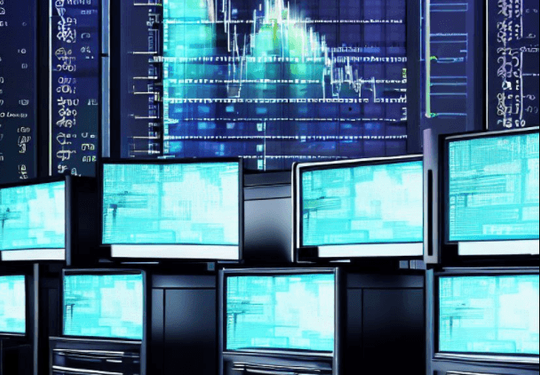The debate on the role of artificial intelligence and its implications for traders has been ongoing for some time. On the one hand, there are those who see AI as a cost-effective tool that provides traders with an edge in the markets, while on the other hand, there are those who are concerned about the risks associated with allowing machines to take over automated trading decisions. Despite the debate, a conclusion has yet to be reached as to whether AI is a blessing or a bane for traders - this blog post will attempt to tackle this issue comprehensively.

AI's Role in Trading

The Advantages of AI Trading
The Advantages of AI Trading. Using AI for trading is advantageous in many ways. One of the main advantages is that it removes the need for manual analysis of data, which can be time-consuming and prone to errors. AI also has the ability to detect patterns and trends in data that humans may not be able to perceive, allowing traders to make more accurate and timely decisions. Finally, AI trading systems are generally able to react to market conditions faster than humans, meaning that traders can react swiftly to take advantage of market opportunities.

AI and Machine Learning Algorithms
AI and Machine Learning Algorithms. AI and machine learning algorithms play an important role in automated trading systems. These algorithms are used to identify patterns in data, predict future market conditions, build trading strategies, and decide when to enter and exit the market. By using AI and machine learning, traders are able to take advantage of their understanding of the markets to build automated trading systems which can react more efficiently to market changes.
Legal and Regulatory Implications of AI Trading
Legal and Regulatory Implications of AI Trading. AI trading has a number of implications for the legal and regulatory framework governing financial markets. For example, the legality of using AI for trading has yet to be established under existing regulations. Furthermore, regulators are also concerned about potential risks of using AI-powered trading systems, such as potential market manipulation, rogue trading, and fraudulent activities. As a result, regulatory authorities are increasingly looking to set limits on the use of AI in the financial markets.
In conclusion, AI has the potential to revolutionize trading and provide traders with an edge in the markets. However, the implications of AI trading for the legal and regulatory framework governing financial markets must be considered. Ultimately, it’s up to the individual trader to decide whether AI is a blessing or a bane - either way, the opportunities of AI are impossible to ignore.
